Getting Oriented
Reflecting on the VVA teacher orientation
Things get real at Virunga Valley Academy when the four-day teacher orientation kicks off. It starts with all of the returning teachers huggin’ out big hellos and welcome backs; meanwhile, all of us new folks do that thing where you pretend like we’ve done this all before even though everyone knows we haven’t (never mind that being here is the most radical life choice we’ve ever made).
All of the teachers and staff were gracious and welcoming to us. The teaching community truly did not disappoint. More than half of the teachers this year are from African countries including Nigeria, Zimbabwe, Burundi, Kenya, Ghana, and Tanzania. Most of the aides, staff, and some teachers are from Rwanda.
The orientation is held in the school’s gym, which is an open-air tin roof structure with a concrete floor painted for basketball that doubles as the cafeteria. The 32 folks on staff sat at tables arranged in a semi-circle around Matt M. who presented the orientation material.
The first day’s content was focused on calling everyone higher toward the spiritual purpose of the school and its missional vision. Matt shared a word from Isaiah 55, which after a series of other echoes has started to become the theme scripture for the year in my opinion. The focus of this initial talk was upon how God’s word goes forth and will accomplish its purpose. In our context, Matt called us to be circumspect as we teach our students spiritually and academically, knowing that vigilant effort invested now will result in transformation not seen until many years from now.
10 As the rain and the snow
come down from heaven,
and do not return to it
without watering the earth
and making it bud and flourish,
so that it yields seed for the sower and bread for the eater,
11 so is my word that goes out from my mouth:
It will not return to me empty,
but will accomplish what I desire
and achieve the purpose for which I sent it.Isaiah 55:10-11
The work content showed up on Thursday morning like a tidal wave. Matt presented a cheat sheet of links to content in the school’s Google Drive, and the firehose of information he covered gave me a big smile remembering what it was like on-boarding new engineers at Tanium. As Bekah struggled mightily with the learning curve of both Google tools as well as her daily laptop now being a Mac, I was also grateful to have had the experience I did at my last workplace to see how useful both of those tools can be. I must underscore, though, how tough it’s been for Bekah fighting the initial frustrations at me for talking her into getting a Mac. Not sure she’s forgiven me yet! 😅
We’ve both been rapidly learning everything we can about teaching — from classroom management, to differentiation techniques, to formative/summative assessments, to how long you can sit next to a laminating machine before the smell makes you sick. Bekah will be teaching secondary (7, 8, and 9) science; I’ll be the secondary math teacher for the same grades as well as the 6th grade. We’ve been spending the time reviewing our subjects’ curricula and turning them into lesson plans for the first week of school starting next Wednesday the 25th.
Bekah’s challenge with lesson plans is definitely greater than mine. She’s blazing new trails here by teaching the first in-person offerings of her classes, as their content was taught online previously. Collecting experiment materials and reading through teacher and student materials has taken tons of time. Both of us are terrified of being unprepared so most of our stress is admittedly self-imposed. All of this lesson planning brings me to a first big reflection I’ve had considering my own education and teachers: Thank your teachers for their prep! Prep is a labor of love and takes so much time to do well. I’m so grateful for my teachers that were well prepared.
I gained access to my classroom and started working on getting it cleaned up and organized to be functional. I went back and forth on whether to decorate the walls with some of the existing Math-related laminated materials I found in the shelves, but they just seemed like such random math concepts that I didn’t want to make things worse by adding irrelevant stuff everywhere. So I’m taking the austere approach and plan on making my first class period with each grade a collaborative activity in which the students work together to create wall art roadmaps of their math unit names. I’m hoping that this hits a few birds with a single stone of giving a good welcoming onramp to me as a teacher, each other as a class, and the content we’ll be covering.
The final day of orientation was a group trip to a special place called “Bella’s Island” with the whole team. We all went out in our cars about an hour from Musanze through a village to a shoreline where we boarded a boat and cruised over to the island. A small hike up the side of the island hillside revealed a nice restaurant-style meeting place where we set up. We took a couple of hours to simply spend time together as a team— hiking around the island (about 30 minutes to make it fully around), kayaking, and playing various games. I discovered a fun one called Qwirkle!
After a delicious lunch of roasted chicken, potatoes, and an interesting mix of vegetables prepared by the island staff, Steve G., our school’s new principal this year, gave us a devotional thought calling for us to imagine the future as shaped by our work at the school. He shared stories of students that he’d worked with a school for the deaf in Kenya 40 years ago and how the direction of their lives have now resulted in beautiful outcomes for them, their families, and communities.
Matt then shared a helpful batch of material helping us all to connect to our team’s various cultural norms via a tool called the Culture Map. To summarize some of the content that resonated with me:
African culture is much more relational and slow to warm up to new people with trust being earned and not easily lost, as opposed to an American style with more swiftly granted openness and more transactional trust in relationships.
Greetings are very important in Africa. Failing to greet someone, especially in the morning, is generally interpreted as a sign of anger toward them.
Indirect feedback is the standard here and rarely is direct feedback an expected approach, especially from folks without deep relationship already established.
The people of Rwanda don’t walk while eating. Seriously. Also interesting is that Rwanda is distinct from other East African countries is that nobody here touches their food with their hands.
So after all that orientating, do I feel prepared for classes to start next week? I feel well prepared to trust that God will give us what we need in terms of energy, focus, and patience to make it through these lesson plans and prep hours to give these kids what they deserve academically. I also feel well equipped to know what to be considering and where to look and who to ask for help. All of the content was useful, but to boil it down to my three things which resonated the most with me:
the talks connecting me to the mission of VVA,
the Cheatsheet doc and links to resources about procedures, and
the time bonding with the people of VVA on the trip to the island.
It was made very clear from the time devoted to worship and instruction that the orientation’s primary focus was to prepare us as a team to engage with our spiritual purposes here. We are on mission to make VVA a dwelling place for God by staying connected to Him and to each other, and through that to become “gates” for our students to also connect with Him.
We’re excited to get started this Wednesday. For our prayer team back home, please pray for the students to be open to our instruction this year and for giving us the right words to say to connect them to the material.
Love you all!


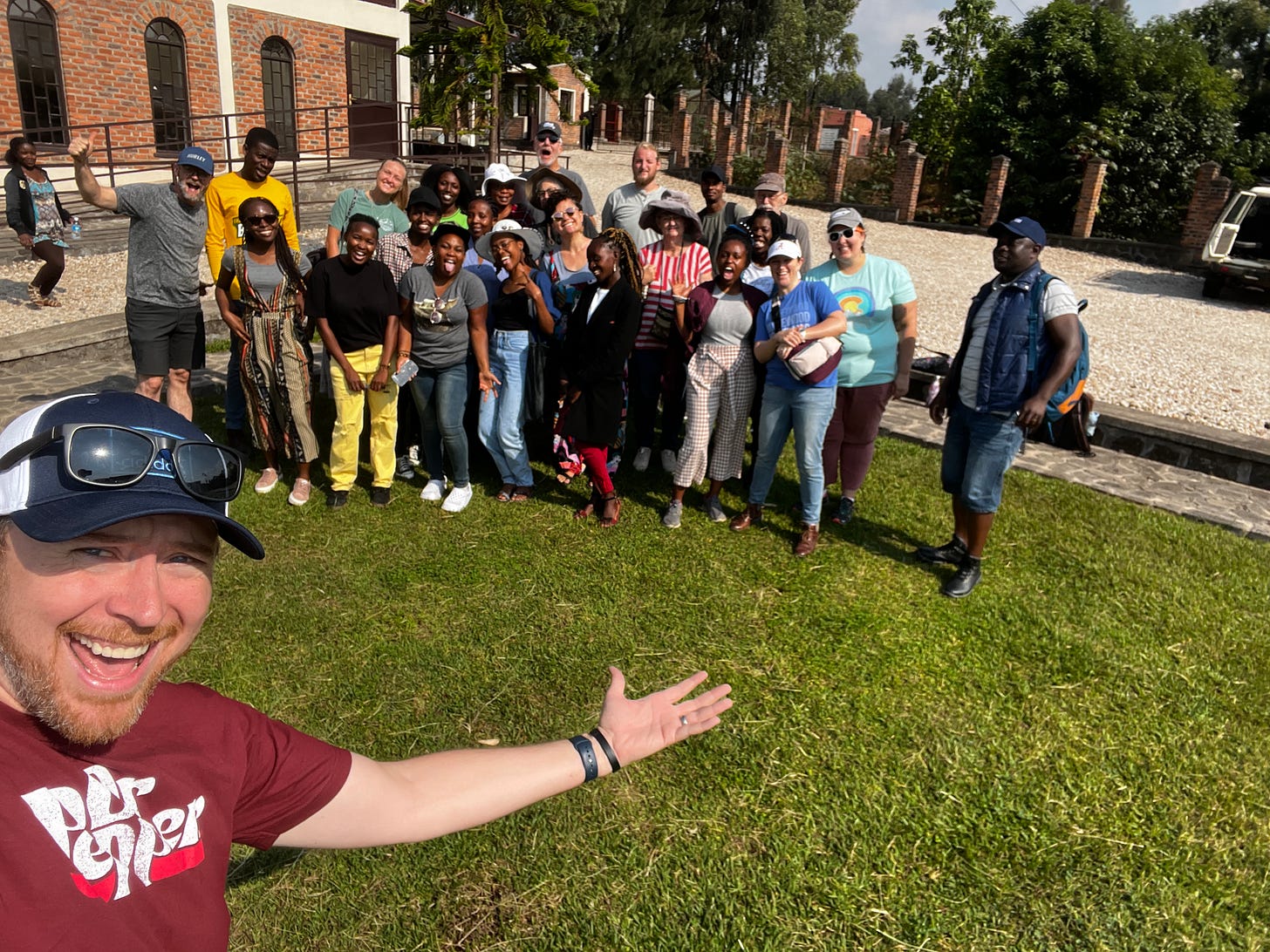
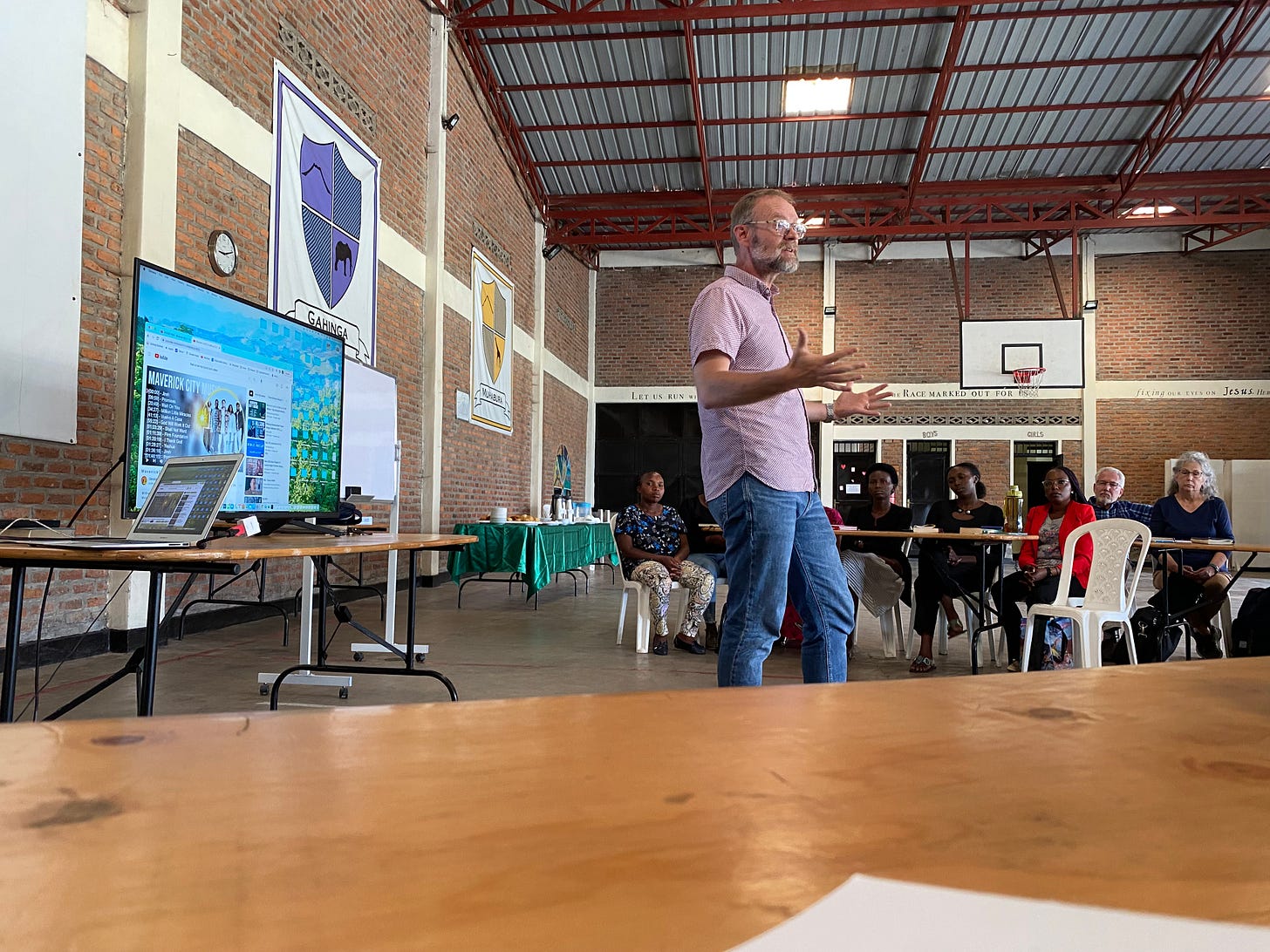
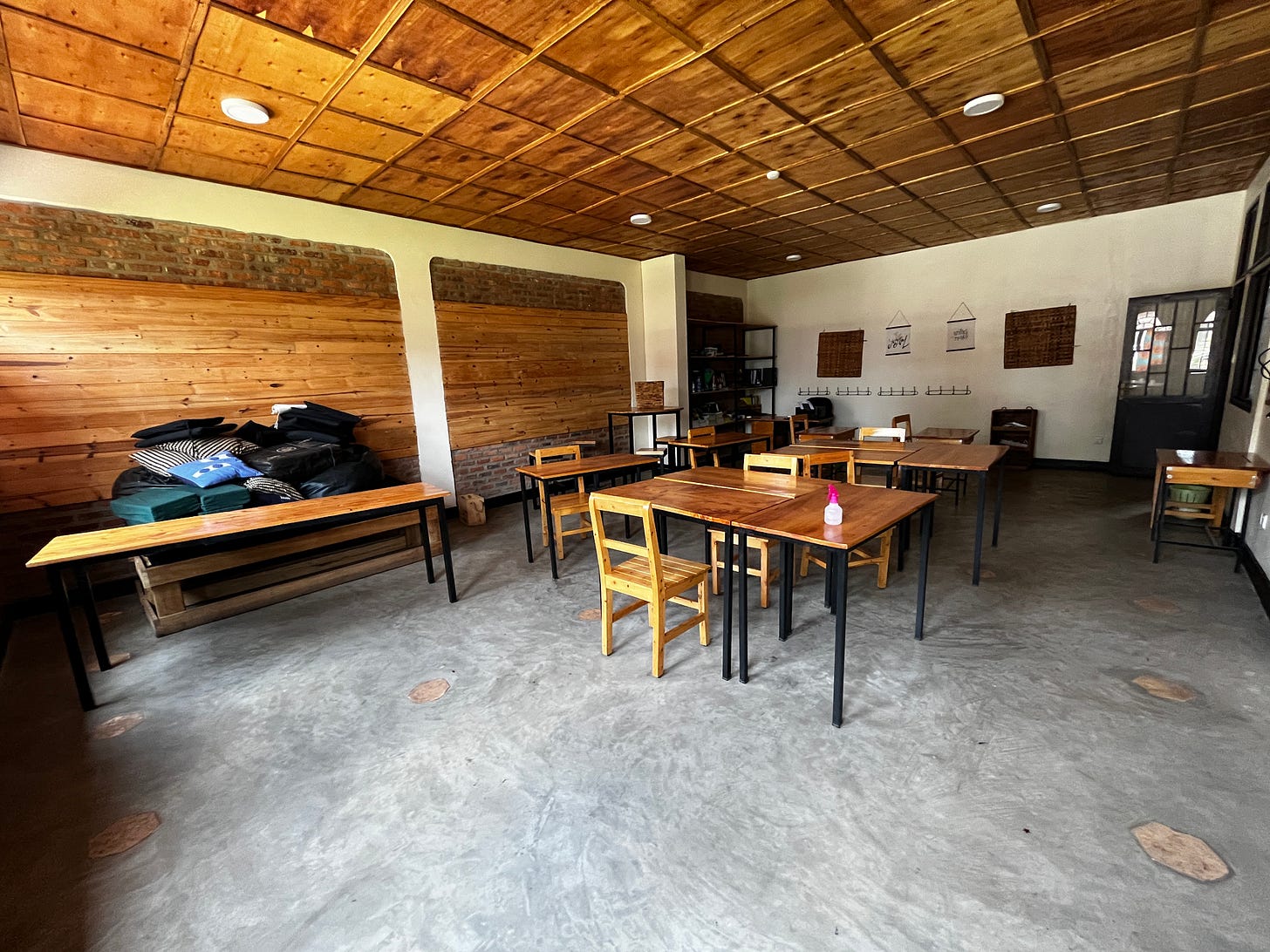
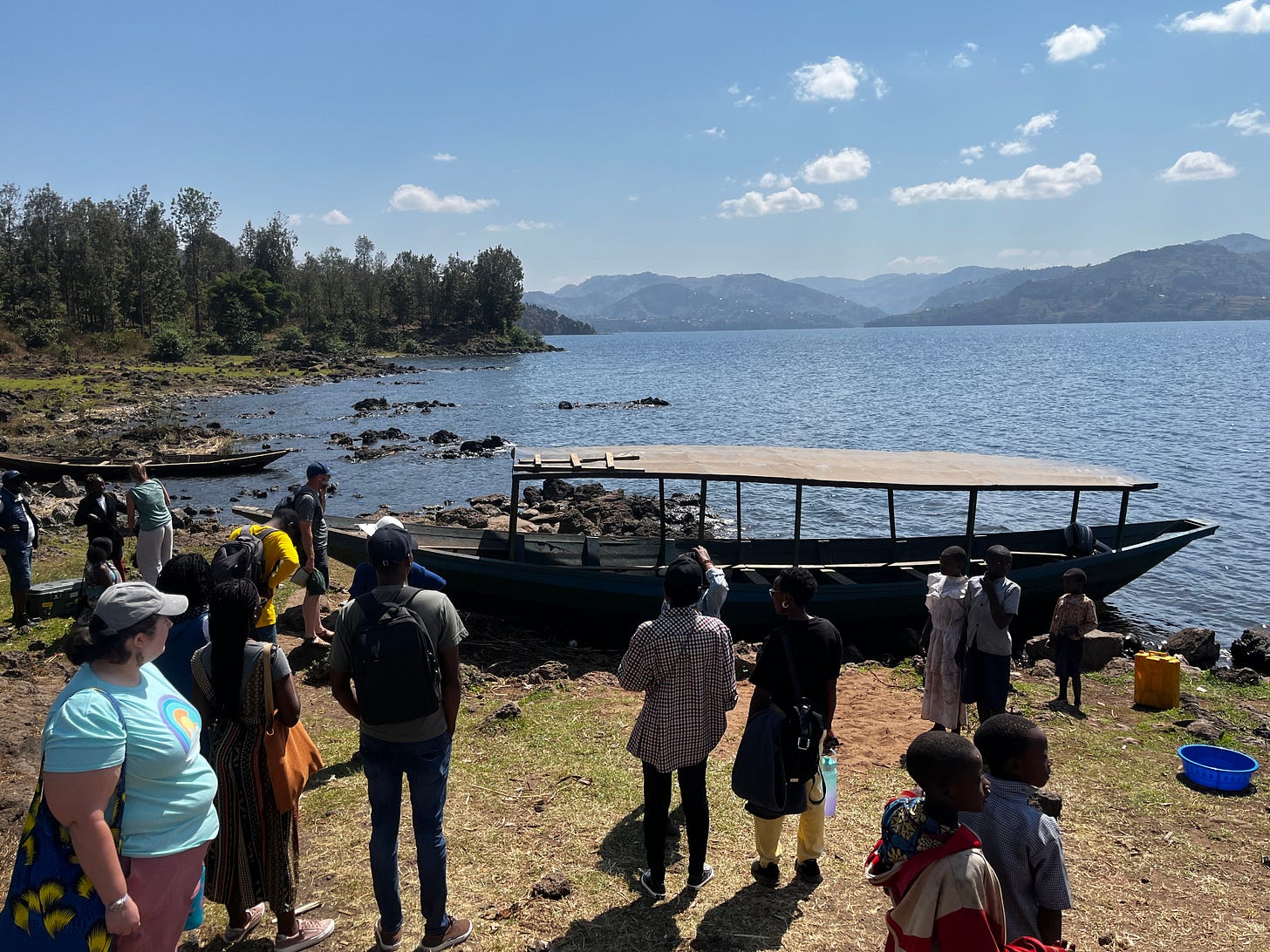
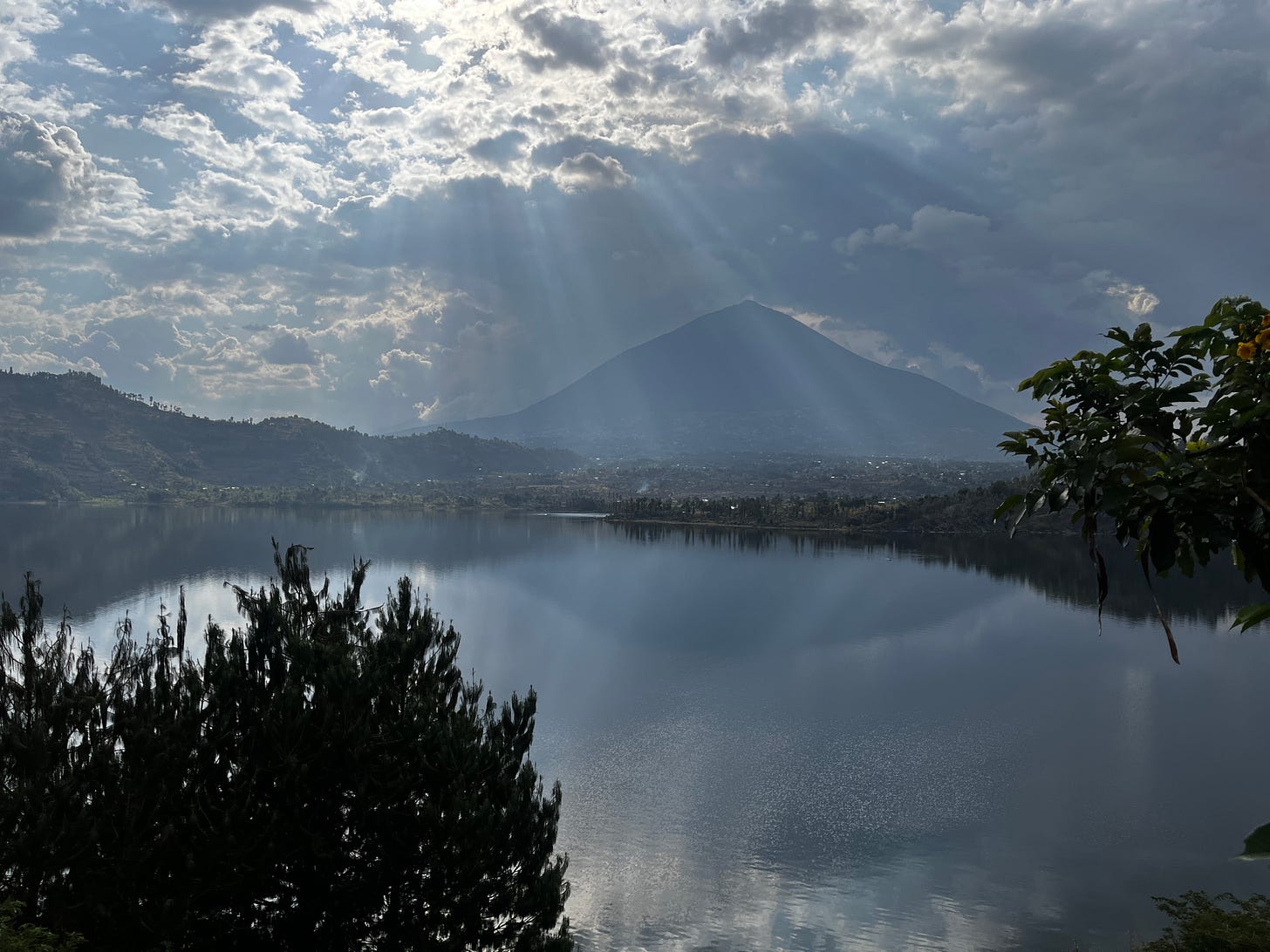
Y'all will do GREAT
You two will rock this Wednesday! Just be yourself! They will love you!